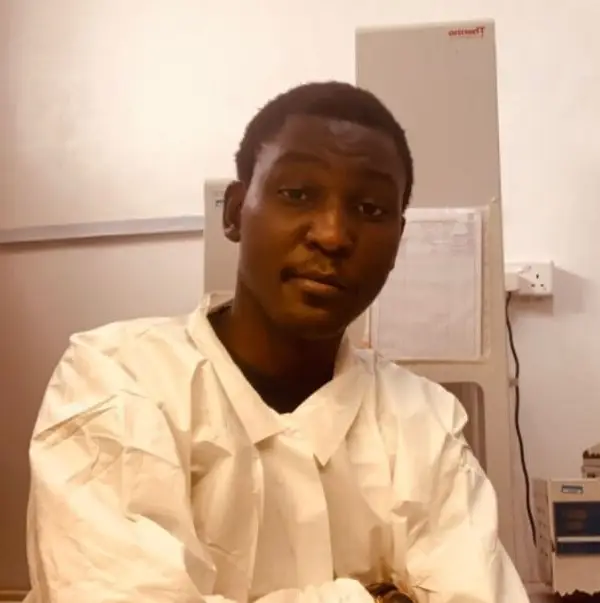Pursuing a PhD is a journey marked by ambition, dedication and, sometimes, heartbreak. As someone who has experienced the sting of rejection multiple times before finally securing a spot in a PhD program, I understand the emotional rollercoaster that comes with this pursuit. My path to a PhD was far from straightforward, but it taught me invaluable lessons about persistence, self-worth, and the importance of focusing on the present.
When I first decided to apply for a PhD, I was filled with excitement and a sense of purpose. I carefully selected programs that aligned with my research interests, carefully crafted my applications, and waited with bated breath for the responses.
Sting of PhD Rejections
What followed were weeks of uncertainty and anxiety, unfortunately culminating in a series of rejections. Each rejection felt like a personal blow, making me question my abilities and my worth as a researcher.
It’s easy to fall into the trap of equating rejection with inadequacy. I certainly did. But as I received more rejection letters, I began to realize that rejection is not a reflection of my abilities or potential. The selection process for PhD programs is highly competitive, with many factors beyond an applicant’s control. Admissions committees consider a wide range of criteria, including funding availability, faculty research interests, and cohort composition. The reality is that sometimes, even the most qualified candidates are not selected simply because their research interests do not align perfectly with the program’s current priorities.
Opportunities and Blessings
After several rejections, I eventually received an acceptance letter from a program at an institution in my home country of Nigeria with external funding. Even though it is among the most prestigious universities in the country, it wasn’t one of my top choices, as I had dreams of pursuing a PhD beyond the borders of Nigeria. At first, I felt a sense of disappointment that I hadn’t secured a spot in one of my preferred programs.
But it was an opportunity, it was a chance to pursue my passion and advance my career. As I began to engage with the faculty and immerse myself in the research, I realized that this program offered unique opportunities that I hadn’t initially considered. The more I invested in my work, the more I appreciated the chance I had been given.
In time, I came to see my acceptance into this program not as a compromise, but as a blessing in disguise. It gave me the space to develop my ideas without the intense pressure I might have faced elsewhere. It allowed me to forge meaningful connections with my current supervisors who were truly interested in my progress, and it provided me with the funding necessary to focus on my research without financial strain. What I had once viewed as a setback turned out to be an opportunity that aligned perfectly with my personal and academic needs.
Embracing the Journey, Not Just the Destination
As I reflect on my journey so far, I’ve come to understand that the path to a PhD is about much more than the end goal of earning a degree. It’s about growth, both academic and personal. Every rejection, every moment of doubt, has contributed to shaping me into a more resilient, adaptable, and thoughtful scholar.
The process has taught me to be patient with myself and to trust that opportunities will come, even if they don’t arrive in the form I originally expected. It has shown me the importance of staying open to new possibilities and of being grateful for the progress I’ve made, even when it looks different from what I had envisioned.
For those currently navigating the often-turbulent waters of PhD applications, I urge you to stay focused on the present and to appreciate the small victories along the way. Whether it’s an encouraging email from a professor, a well-received conference presentation, or simply the satisfaction of completing a challenging piece of research, these moments are worth celebrating. They are the building blocks of your academic journey.
Location is Secondary to the Attitude You Bring
To those who dreamed of studying abroad but faced rejection and ultimately decided to pursue their studies in their home country, I want to offer a message of encouragement and perspective. Rejection is never easy, especially when it involves something as significant as your educational aspirations. The idea of studying abroad often represents more than just academics; it symbolizes new experiences, cultural immersion, and the chance to be part of a global community. So, when those dreams are met with rejection, it can feel disheartening, as though an important opportunity has slipped through your fingers.
However, I want to remind you that your value and potential are not diminished by where you study. The quality of your education is shaped not just by the location, but by your dedication, curiosity, and commitment to making the most of your opportunities, wherever they may be. Choosing to study in your home country does not mean you have settled for less. It means you have adapted and embraced the opportunities available to you, demonstrating resilience and determination. These are qualities that will serve you well in your academic journey and beyond. The knowledge you gain, the relationships you build, and the contributions you make to your field will not be defined by borders, but they will be a reflection of your passion and hard work.
Final Thoughts
Remember, the PhD process is not about achieving perfection or meeting every expectation you set for yourself. It’s about learning, growing, and persevering, even when the path ahead is uncertain. Rejection is not the end, it’s just one of many steps in a much longer journey. Keep moving forward, and trust that with hard work and dedication, you’ll find your place in the academic world. And remember, success is not limited to a specific place or institution.




